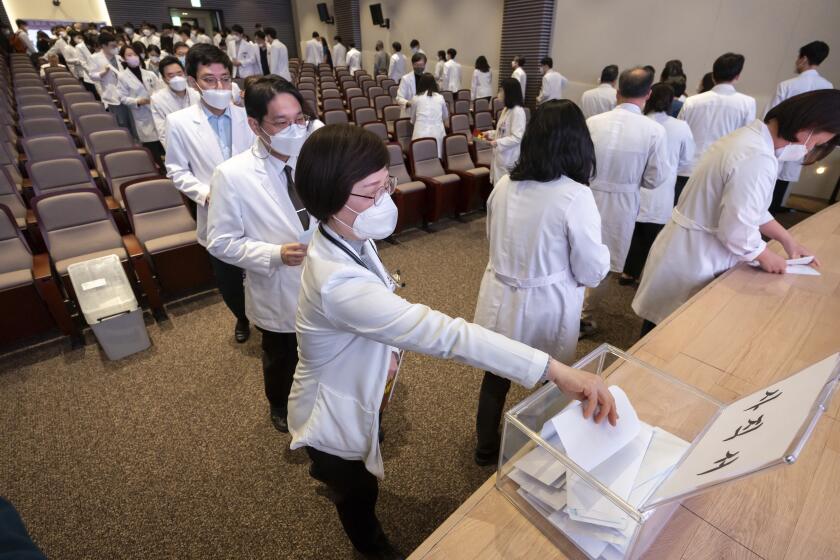Two Army officers testify for Hamdan, in secret
Two U.S. Army Special Forces officers who encountered terrorism suspect Salim Ahmed Hamdan after his November 2001 arrest in Afghanistan testified in secret at his trial Thursday because the events they discussed are classified.
Special Forces psychologist Col. Morgan Banks and Lt. Col. Guy John Taylor, a military lawyer assigned to a Special Forces unit in Afghanistan at the time, testified for the defense for more than an hour each.
After the witnesses identified themselves, only those with top secret security clearances were allowed to remain in the courtroom, leaving neither media nor human rights monitors present at the trial of Hamdan, who was Osama bin Laden’s driver and is the first person to be brought before the war crimes tribunal.
Censors previously have branded comments or evidence “protected” for reasons of national security. But the two officers’ testimony behind closed doors was the first time the public had been excluded for the entirety of a witness’ appearance.
It was a day replete with secrecy, as the military judge issued a ruling explaining why he would allow a federal counter-terrorism agent to testify for the prosecution despite defense motions seeking to suppress statements that the defense alleged were coerced. About 80% of Navy Capt. Keith J. Allred’s five-page ruling delivered Thursday was blacked out by censors as classified evidence.
Special Agent Robert McFadden testified that during interrogation, Hamdan had admitted swearing an oath of loyalty to Bin Laden.
Of 10 federal agents called to testify about their interrogations of the accused, McFadden was the only one who said Hamdan had made such an admission.
McFadden, an agent with the Naval Criminal Investigative Service, also told the court that Hamdan had described feelings of “uncontrolled passion or zeal” upon learning of Al Qaeda’s most devastating terrorist strikes.
But defense lawyers pointed out that in four appearances before the court since December, McFadden had used three different Arabic words when recounting Hamdan’s statement. The agent’s Arabic proficiency also came into question when he was asked to read from documents in that language, one of which he failed to point out had been presented to him upside down.
McFadden gave prolific answers under questioning by prosecutor John Murphy but appeared evasive and resistant to defense lawyers’ inquiries.
He was the last witness for the prosecution.
The trial began nearly two weeks ago.
Observers cast the day’s secrecy as illustrative of the Guantanamo court’s shortcomings.
“They talk about holding full, fair and transparent proceedings, yet a page from the 9/11 [Commission] Report can be classified as well as the entire testimony of two important witnesses,” said Sahr MuhammedAlly, a lawyer with Human Rights First.
A counter-terrorism advisor for Human Rights Watch, Stacy Sullivan, said: “The reason closed sessions are so troubling at Guantanamo is because the government has so frequently claimed things have had to be classified to cover up abuse and torture.
“In addition, trials of this magnitude should have a public record. If a significant amount of evidence and witness testimony is classified, it will be very hard to trust any verdict.”
Ben Wizner, a staff attorney for the American Civil Liberties Union, pointed to Allred’s ruling as an example of excessive secrecy.
“This is Guantanamo in black and white -- mostly black,” he said, holding up the heavily redacted decision.
--
More to Read
Sign up for Essential California
The most important California stories and recommendations in your inbox every morning.
You may occasionally receive promotional content from the Los Angeles Times.











